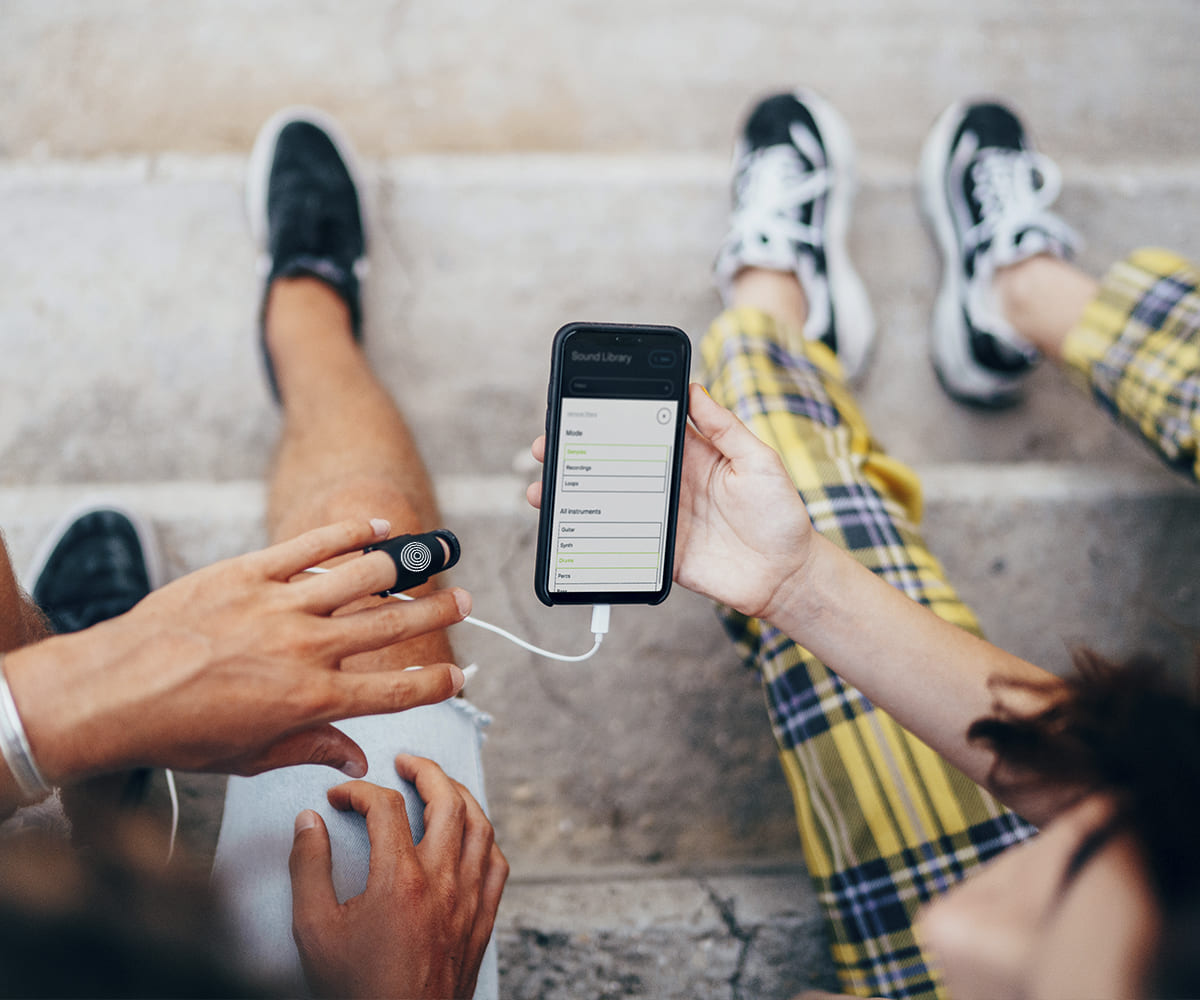Stuck in a Loop? How music helped me escape the scroll spiral
And while it’s no secret, the fast-paced lifestyle of big cities can be a bit overwhelming when you’re used to slower rhythms.
Every time I come back to a place like this, I have the same favorite ritual: watching people and just observing. What they do, how they react to the world around them... It’s wild how many details you can catch by simply paying attention. And how much inspiration it brings. No matter what you do for a living, it will make a huge impact on your brain chemistry.
That’s how this article was born, in a packed underground train, somewhere between Camden Town and Liverpool Street, surrounded by tired faces and glowing screens. Everyone was scrolling. No one was there.
And then it hit me, maybe boredom isn’t the enemy. Perhaps we've just forgotten how to be bored the right way.
Music isn’t just sound, it’s presence
There was this one moment when I was on the Piccadilly line, in between stations. No signal, just the dim flicker of fluorescent lights and the usual hum of the train. I was doing what everyone else was doing… scrolling. But suddenly I caught the sound of someone tapping their fingers against the metal pole.
Rhythmic. Repetitive. Almost unconscious.
It made me look up. Just a teenager lost in their beat, eyes half closed, head gently nodding. And for a second, I wasn’t thinking about emails or deadlines. I was there. Listening. Observing. Feeling the rhythm echo through the train.
That moment reminded me that music has always been about connection, not perfection.
Why do we need new ways to interact with the world
The more time we spend in digital loops, the more we crave something tactile. Something real. Something that feels like play instead of performance.
We don’t always want to “consume” music; we want to interact with it. Respond to it. Be part of it.
That’s what makes Music Fingers so special. It doesn’t ask for attention; it creates it. You tap, you move, you improvise. Suddenly, you’re not scrolling to escape boredom, you’re making sounds to transform it.
And I think it's not only about becoming a musician, but it’s also about breaking the rhythm of passive living.
Why it’s so easy to lose focus (and why we should care)
We’re living in the era of infinite scroll, and it’s not just about distraction; it’s about design. The way social media and digital platforms are designed directly engages our brain’s reward system. It’s addictive on purpose.
And here’s something that hit me even harder after reading about it: it’s not just the doomscrolling or the noise, our focus fades because our brain literally gets tired. According to Harvard Health, things like poor sleep, information overload, and even some medications can burn out your cognitive resources. And when your mind’s already overloaded, that quick scroll becomes a default escape. If you're curious to understand how all this impacts your brain on a deeper level, Harvard breaks it down pretty clearly right here.
According to a piece by The New York Times, boredom can actually push people to do amazing things when they embrace it instead of running from it. It’s not about being entertained all the time; it’s about learning how to sit in that silence long enough to let ideas pop up. Turns out, some of the most creative breakthroughs come from moments when you’re just… doing nothing. f you’re curious to dig deeper, this piece breaks it down really well.
That’s why finding small ways to reclaim your attention matters. Because when you break the loop, you make space for something new to emerge.
The power of boredom (and why we shouldn’t rush to escape it)
Lately, boredom has become the enemy. The second we feel it creeping in, we reach for something, our phone, a notification, a playlist, anything. But what if boredom isn’t a glitch, but a signal?
Sitting still on a train without Wi-Fi might be uncomfortable, but it’s also a window. That silence, that nothingness, is where thoughts get louder, ideas sneak in, and creativity stretches its legs.
The problem isn’t boredom. It’s how we’ve learned to run from it.
What I noticed in London, on buses, at crosswalks, even in museums, is that many of us are in a constant scroll. Even in places designed for inspiration, our focus is elsewhere.
But that teenager tapping a beat on the subway? He wasn’t scrolling. He was creating. Maybe not intentionally, maybe not for an audience, but they were present. Connected to rhythm. And that changes everything.
How to reclaim your attention in daily life
We often talk about mindfulness like it’s a meditation app or a luxury retreat. But sometimes, reclaiming your attention is as simple as putting your phone down for 30 seconds and listening to the sounds around you, your thoughts, your breath.
Music can be an anchor. It gives your brain something to play with — rhythm, repetition, progression. And tools like Music Fingers make that even easier, letting you engage physically with sound instead of just passively consuming it.
If you find yourself reaching for your phone without thinking, maybe that’s the perfect cue to tap out a beat, hum a melody, or just close your eyes and listen. Not every moment needs to be filled. Some just need to be felt.
Bored but awake
So yeah, I went to London for work, but I came back with more than I expected. A reminder that silence is underrated. That boredom is fertile ground. That creativity doesn’t need permission.
Music Fingers isn't about replacing instruments or teaching you music theory. It's about letting your fingers speak when your mind needs a break.
What we need isn’t more content; it’s more connection.
This isn't about watching, it's about doing.
If you're ready to tune out the noise and tap into your own rhythm, you're in the right place:
Join the beat maker revolution →





Leave a comment
This site is protected by hCaptcha and the hCaptcha Privacy Policy and Terms of Service apply.